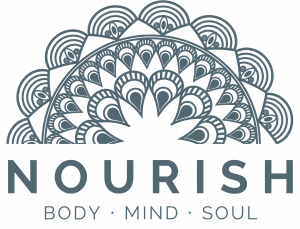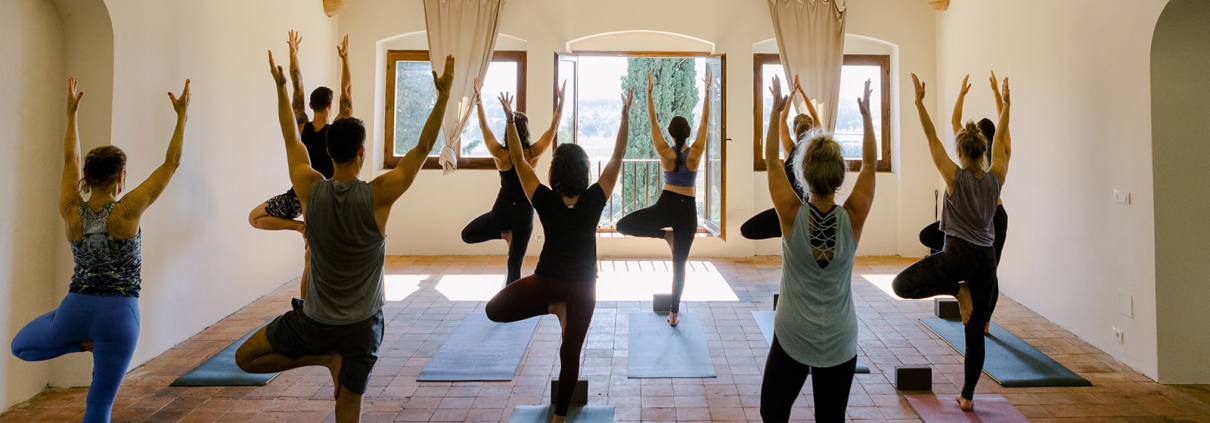In Nourish’s classes, you will be guided not only in physical poses, but also in practices that enhance your daily life. These Practices are laid forth in Patanjali’s Yoga Sutras which was written in India in the early centuries CE. I have laid them forth in the simplest of terms, but know that as you Practice Yoga, these will take on deeper meaning. Just as we explore our body through many layers (koshas), gross to subtle, you will find that these limbs speak to many facets of your being. I invite you to purchase a copy of The Yoga Sutras and begin to explore.
1. Yama: Correct behavior toward others.
- Nonviolence
- Truthfulness
- Not stealing
- Not wasting energy
- Abstaining from greed
2. Niyama: The principles by which you should live your own life
- Purity
- Contentment
- Spiritual observances
- Self Study
- Devotion
3. Asana: The yogi’s seat and postures to prepare the body
4. Pranayama: Breathing exercises to regulate energy
5. Pratyahara: Turning the senses inward
6. Dharana: Focused attention; training the mind to meditate
7. Dhyana: A continuous flow, meditation perfected.
8. Samadhi: Unity with higher consciousness
I will continue to contemplate these Limbs and share my musings with you. Stay tuned.

